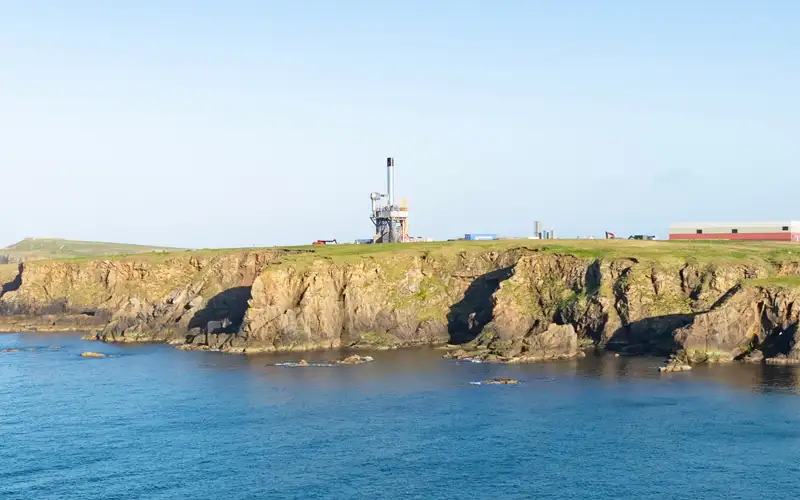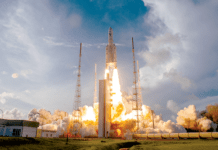
A UK House of Lords special inquiry committee has heard from industry experts on the importance of fostering a sovereign launch capability.
The UK Engagement with Space Committee was established by the House of Lords in January 2024. As a special inquiry committee, its primary aim is to examine how the UK can effectively engage with the rapidly evolving global space industry and ensure that national policies, regulations and investments serve the country’s long-term interests.
During its 24 March session, the committee heard from six expert witnesses across two panels. The second panel focused on the United Kingdom’s need to develop its own launch capacity and featured testimony from Scott Hammond, Deputy CEO of SaxaVord Spaceport; Alan Thompson, Head of Government Affairs at Skyrora; and Adam Baker, Co-founder of UK Launch Services.
In response to a question asking what the case was for the UK possessing a sovereign launch capability, Adam Baker explained that the country was the “only well-developed space economy in the world who not only doesn’t have it, but we did have it, and we gave it away.” This is a reference to the UK’s decision to cancel its Black Arrow launch programme in the early 1970s, despite having successfully placed a satellite into orbit.
On the importance of launch, Baker explained, “You can build the cleverest satellite in the world. It can look great. It’s no use at all until you can get it into space.” He emphasised the value of proximity, noting the advantage of being able to load a satellite onto the back of a truck and “drive it up the road with two people to pop it on the launch vehicle.” According to Baker, this kind of easy access to launch services significantly reduces risk for the UK’s space economy.
In addition to the UK’s internal drivers, SaxaVord’s Scott Hammond highlighted current geopolitical uncertainty as a key factor driving the need for sovereign capabilities.
“So, if we want UK payloads to get up into space… the idea that we will be able to do it through America… certainly in today’s, you know, the last 50 days, I think is very, very doubtful. The UK needs access to space. It needs its own sovereign access to space if we are to grow all of the companies that you’ve just had presenting to you.”
Adding to the geopolitical importance of developing a launch capability, Skyrora’s Alan Thompson explained that it would give the UK a “voice in space.”
“Most people who are looking to launch are beholden to the United States solutions or services that are there,” said Thompson. “Without having our own home-based or UK-based service provider, we risk not having that voice and not being able to undertake all these experiments or be able to manifest ourselves better in space.”
While the session included contributions from Skyrora, there was a notable absence of any representative from Orbex. In January, the UK government made its first direct investment in a launch provider, awarding £20 million to Orbex to support the construction and launch of its first Prime rocket from SaxaVord Spaceport. Skyrora has not received a similar commitment.




